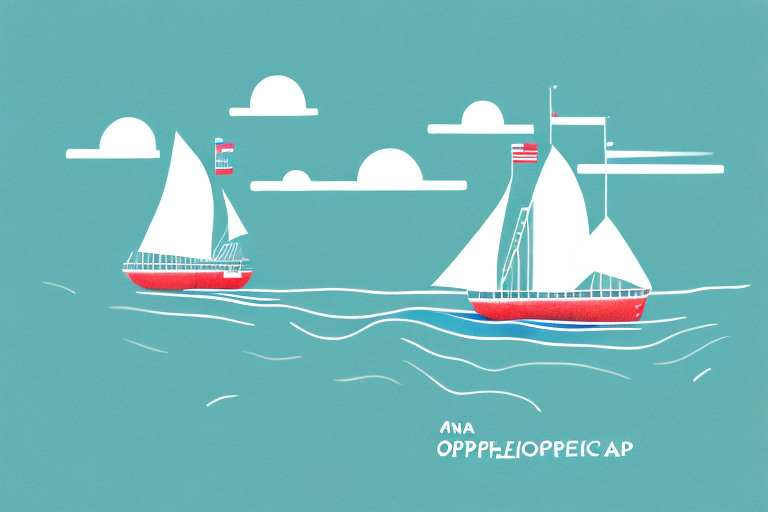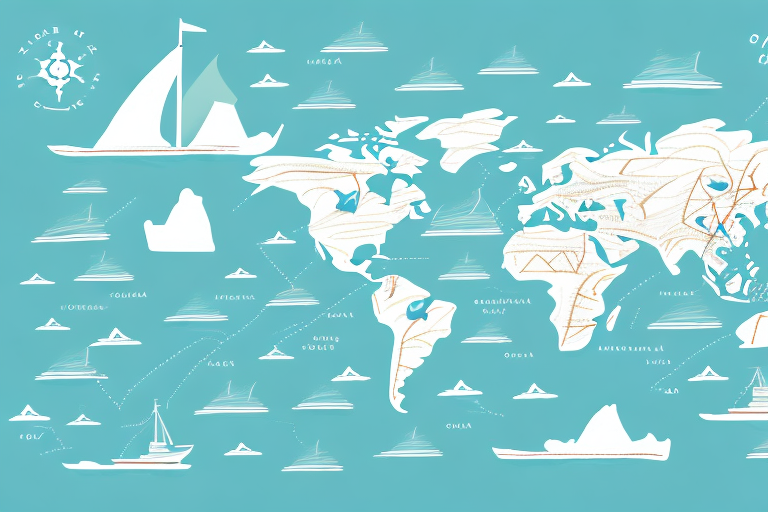Embarking on a Career as a Ship Consultant: A Comprehensive Guide
Are you interested in the shipping industry and looking for a challenging and rewarding career path? Consider becoming a ship consultant. In this guide, we will explore what a ship consultant does, the educational requirements and certifications needed, the relevant skill sets to develop, and much more. By the end of this article, you'll have a comprehensive understanding of how to start and navigate a career in ship consulting.
What is a Ship Consultant?
A ship consultant is a professional who offers advisory and consulting services to clients in the shipping industry. They provide assistance and recommendations to shipping companies, ship owners, and other maritime stakeholders on issues such as optimizing shipping operations, managing regulatory compliance, and mitigating risks.
Ship consultants may also specialize in specific areas such as environmental sustainability, maritime law, or vessel design. They conduct research and analysis to identify industry trends and best practices, developing strategies to help clients stay competitive in the market. Additionally, ship consultants may provide training and education to their clients' staff to ensure they have the necessary skills and knowledge to operate and maintain their vessels safely and efficiently.
Specializations in Ship Consulting
- Environmental Sustainability: Focuses on reducing the environmental impact of shipping operations.
- Maritime Law: Provides expertise on legal aspects affecting the shipping industry.
- Vessel Design: Advises on the design and engineering of ships for optimal performance.
Why Consider a Career as a Ship Consultant?
There are numerous reasons to pursue a career as a ship consultant:
- High Demand: The need for ship consulting services remains consistently high, ensuring a steady stream of work.
- Growth Opportunities: The industry offers significant potential for career advancement and increased earning potential.
- Intellectual Stimulation: The role involves working with complex systems and devising strategies to overcome challenges in the shipping industry.
- Global Exposure: Opportunities to travel and work with clients from around the world, enhancing cultural understanding and professional networks.
- Impact on Global Trade: Contributing to the efficiency and sustainability of global commerce.
According to the Bureau of Transportation Statistics, the maritime industry plays a crucial role in global trade, accounting for over 80% of the world's trade by volume.
Educational Requirements for Becoming a Ship Consultant
Most ship consulting positions require at least a bachelor's degree in a relevant field such as maritime studies, logistics, or business. Some employers may prefer candidates with a master's degree or higher. Recommended areas of study include:
- Transportation Economics
- Marine Engineering
- Logistics Management
- Environmental Science
In addition to formal education, practical experience in the maritime industry is highly valued. This can include roles on ships, in ports, or within logistics companies. Strong communication and problem-solving skills are essential, as ship consultants often interact with various stakeholders including ship owners, operators, and government agencies.
Experience Required to Become a Ship Consultant
While requirements can vary, most employers expect candidates to have several years of relevant work experience in the shipping industry or related fields. Beneficial roles include:
- Ship Management
- Marine Surveying
- Logistics Coordination
- Port Operations
Successful ship consultants possess excellent communication and problem-solving skills, attention to detail, analytical thinking, and the ability to work under pressure. These attributes enable them to effectively communicate with clients, understand their needs, and provide solutions to complex problems.
Certifications and Licenses Needed to Be a Ship Consultant
Obtaining relevant certifications can enhance your qualifications as a ship consultant:
- International Safety Management (ISM) Code Certification: Essential for ships over a certain size to ensure safety and pollution prevention.
- Certified Marine Surveyor: Validates expertise in assessing ship conditions and compliance.
- Accredited Marine Consultant: Demonstrates recognized proficiency in marine consulting.
- Merchant Mariner Credential: Beneficial for certain consulting roles requiring maritime operational knowledge.
- ISO 14001 Environmental Management System Certification: Important for consultants specializing in environmental compliance.
Requirements for certifications and licenses may vary based on the specific consulting area. It is crucial to research and understand the necessary qualifications for your desired specialization.
Developing Relevant Skillsets for a Career in Ship Consulting
Essential skills for ship consultants include:
- Critical Thinking: Ability to analyze complex situations and develop effective solutions.
- Problem-Solving: Tackling challenges with innovative approaches.
- Communication: Conveying information clearly to diverse stakeholders.
- Project Management: Planning and executing projects efficiently.
- Analytical Skills: Evaluating data and trends to inform strategies.
Staying up-to-date with the latest industry trends and technologies is vital. This can be achieved by attending industry conferences, networking with professionals, and reading publications such as the International Chamber of Shipping reports.
Effective Project Management
Managing projects involves setting clear goals, creating detailed project plans, and managing resources and timelines. Effective project management ensures that projects are completed on time, within budget, and to the client’s satisfaction.
Networking Opportunities for Aspiring Ship Consultants
Networking is crucial for building a successful career in ship consulting. Here are some strategies:
- Attend industry conferences and events to meet potential clients and employers.
- Join professional organizations such as the American Association of Port Authorities or the World Ocean Council.
- Participate in online forums and discussion groups related to shipping and maritime consulting.
- Conduct informational interviews with experienced professionals to gain insights and advice.
- Engage in local networking events or meetups for shipping industry professionals.
Starting Your Own Ship Consulting Business
Launching a ship consulting business requires:
- Industry Knowledge: In-depth understanding of maritime operations and consulting.
- Business Plan: A solid plan outlining services, target markets, and financial projections.
- Registration: Officially registering your business and obtaining necessary licenses.
- Service Offerings: Defining the specific consulting services you will provide.
- Pricing Structure: Establishing competitive fees and pricing models.
Identify your target market by focusing on specific ship types, such as cargo or cruise ships, or particular consulting areas like safety or environmental compliance. Building a strong network of industry contacts is essential for establishing credibility and generating business opportunities.
Building Industry Contacts
Attend industry events, join professional organizations, and connect with other consultants and experts. Building relationships with potential clients and industry leaders can help you establish credibility and generate new business opportunities.
Finding Job Opportunities as a Ship Consultant
Job opportunities can be found through various channels:
- Browse job listings on industry websites such as Maritime Connector or LinkedIn.
- Contact maritime consulting firms directly to inquire about openings.
- Leverage your professional network for recommendations or referrals.
- Attend industry conferences and events to meet potential employers.
- Participate in workshops and seminars to enhance your skills and visibility.
Ensure your resume and online profiles are up-to-date, highlighting relevant experience, skills, certifications, and training to attract potential employers.
Responsibilities and Duties of a Ship Consultant
Ship consultants handle a wide range of responsibilities, including:
- Advising clients on shipping operations, regulatory requirements, and safety management systems.
- Making recommendations on logistics, transportation, and vessel selection.
- Conducting performance and efficiency audits.
- Managing environmental compliance and risk mitigation.
- Developing emergency response plans and procedures.
Common Challenges Faced by Ship Consultants and How to Overcome Them
Ship consulting presents several challenges, such as:
- Regulatory Compliance: Navigating complex and evolving maritime regulations.
- Industry Dynamics: Keeping up with rapid changes in the shipping industry.
- Stakeholder Management: Balancing the needs and expectations of multiple stakeholders.
To overcome these challenges:
- Stay informed about the latest industry trends and standards.
- Communicate clearly and effectively with clients and colleagues.
- Collaborate with others to find innovative solutions to complex problems.
Salary Expectations for Ship Consultants
Salaries for ship consultants vary based on experience, location, and company size. According to PayScale, the average salary for a ship consultant in the United States is approximately $85,000 per year, with entry-level positions starting around $60,000 and experienced consultants earning upwards of $120,000 annually.
Advancement Opportunities in the Field of Ship Consulting
The ship consulting field offers numerous opportunities for growth, including:
- Advancing to senior consultant or director roles.
- Specializing in niche areas such as environmental compliance or maritime law.
- Transitioning into related roles such as logistics manager or port director.
- Starting your own consulting firm.
The Future of the Shipping Industry and the Role of Ship Consultants
The shipping industry is anticipated to continue its growth trajectory, with increasing emphasis on sustainability and the adoption of new technologies. According to the International Maritime Organization (IMO), initiatives such as the reduction of greenhouse gas emissions and the implementation of autonomous shipping technologies are shaping the future landscape.
Ship consultants play a critical role in helping the industry navigate these changes by providing expertise on sustainable practices, regulatory compliance, and the integration of advanced technologies. Their guidance ensures that shipping companies can adapt effectively to evolving market demands and environmental standards.
Conclusion: Is Becoming a Ship Consultant Right for You?
Becoming a ship consultant can be a rewarding career path for those passionate about the shipping industry and equipped with the necessary background, education, and skills. With consistent demand for consulting services, potential for career advancement, and the opportunity to work on complex and impactful projects, ship consulting is a career worth considering.
If you're interested in pursuing ship consulting as a profession, start by:
- Gaining relevant education and experience in the maritime industry.
- Obtaining necessary certifications and licenses.
- Building a strong professional network within the shipping sector.
- Researching and applying for job opportunities in the field.
Good luck on your journey to becoming a ship consultant!



















